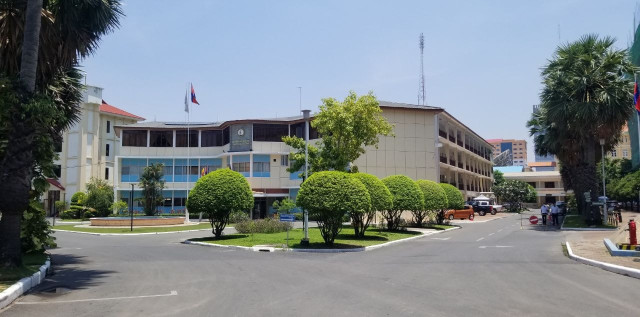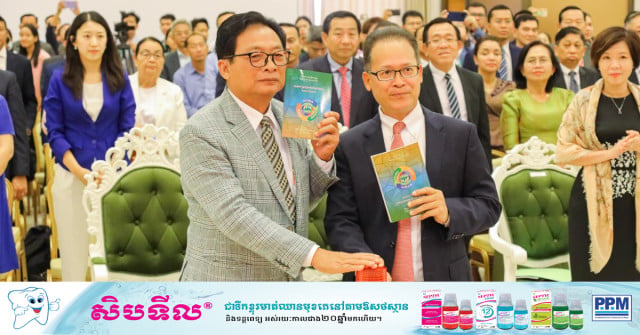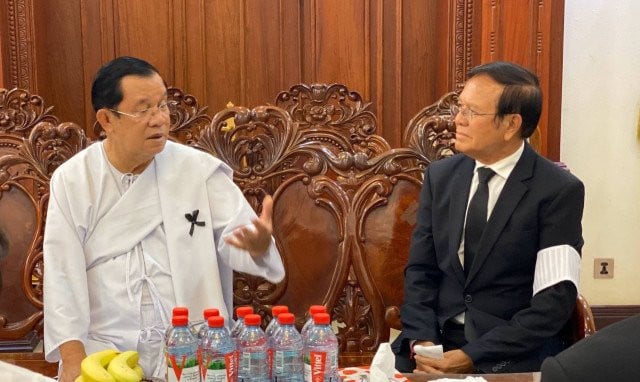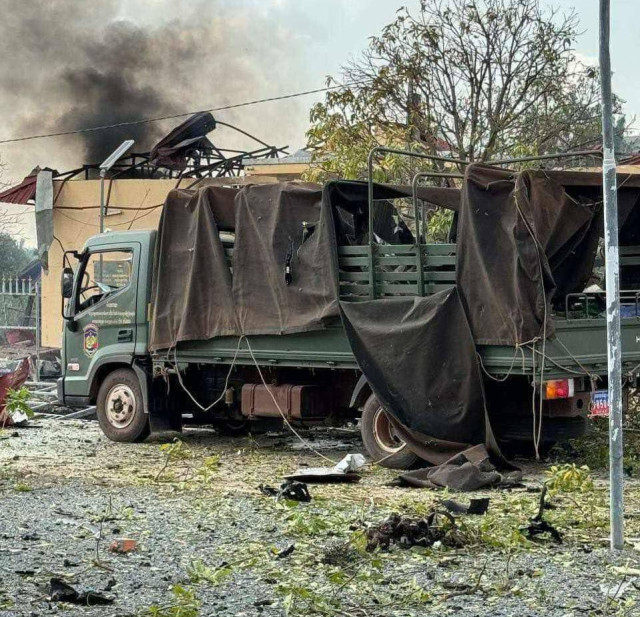PM Hun Manet’s Australia Visit Sparks Ambivalence Among Diaspora, Raises Hope for Ties Reset
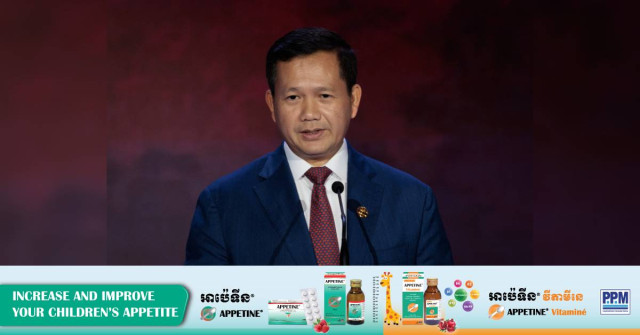
- By Sao Phal Niseiy
- February 16, 2024 9:50 AM
CANBERRA – Prime Minister Hun Manet will visit Australia for the first time as national leader to take part in the March 4 to 6 Australia-ASEAN Special Summit in Melbourne. He is expected to face both greetings and protests organized by Cambodian communities.
While the Cambodian diasporas express mixed feelings about the visit, experts view it as an important opportunity for the Australian government to take significant steps to encourage Cambodia to improve human rights and democracy.
Or Phanith, a Cambodian resident in Canberra, said he will take part in a meeting between the Cambodian diaspora and Hun Manet.
“We must be proud as our Prime Minister comes here on an official visit at the Australian government’s invitation,” Phanith said.
“I am eager to greet and listen to our leader’s perspective on the progress as well as fresh outlook and strategy on the development of our country.”
More than 1200 Cambodians from all over Australia were expected to join in an event to greet the PM, he said.
Phanith hopes it will boost relations between Cambodia and Australia, paving the way for stronger people-to-people links and closer economic cooperation that eventually will benefit Cambodia’s development.
“We want to see the continued development of ties between the two, and more importantly, we as Cambodian Australians want more Australian investors to go and invest in Cambodia,” he said.
However, other expatriates spoke of their unhappiness with the political situation in Cambodia.
Another resident of Canberra and a former political prisoner, Chea Sucheab said there was nothing to be optimistic about Hun Manet’s official visit as there had been no positive change when it came to the Cambodian government.
“We have seen the same old system in place despite changes in faces,” Sucheab said.
“When thinking of Cambodia, I only wish the government and its leaders could have cared more about freedom of expression, human rights and democracy.”
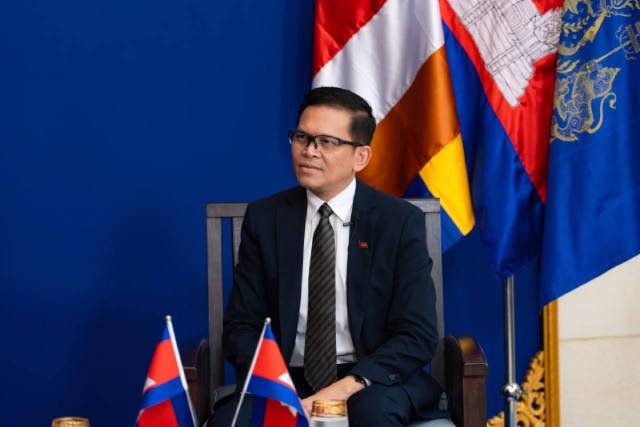 This photo shows Pen Bona, chief government spokesperson. Photo: Pen Bona
This photo shows Pen Bona, chief government spokesperson. Photo: Pen Bona
Chance to spread message on development
Cambodian government spokesperson Pen Bona said the planned gathering between Hun Manet and the Cambodian Australian community was part of a long tradition of ruling Cambodian People’s Party leaders during official and unofficial visits to other countries.
“This is an essential opportunity for our leader to brief them on the government’s development policy and progress while cultivating a strong bond between our leaders and our patriots,” Bona said.
Asked about the significance of the visit, Bona said it highlighted Cambodia's growing importance as a sovereign nation, both regionally and globally.
Cambodia, like other ASEAN members, plays a significant role in strengthening relations between ASEAN and Australia,” he said.
“Cambodia and Australia have enjoyed strong ties since the era of former Prime Minister Hun Sen. PM Hun Manet, as his successor, will work towards further enhancing the ties.
Co-founder of the Cambodian Institute for Democracy (CID), Ro Vannak said the visit would contribute to stronger cooperation between Cambodia and Australia.
“This can set the agenda for Cambodia's diplomatic diversification to seek economic opportunities and national interests. The visit will likely reinforce cooperation in investment, trade and education,” Vannak said.
Emeritus Professor of Politics at the University of New South Wales Carlyle Thayer anticipated that the visit would allow a reset in ties between Australia and Cambodia following Manet’s accession to the prime ministerial post in 2023.
“The faults and shortcomings of the 2023 elections can be sheeted home to former PM Hun Sen,” Thayer said, adding that Hun Sen’s baggage of human rights violations, ultra-nationalism, and abrasive behaviors now were in the past.
“Hun Manet comes into the office with a ‘clean sheet’ so to speak.”
Political scientist, Po Sovinda, who is also the director of the Center for Southeast Asian Studies, Royal University of Phnom Penh, agreed that Hun Manet's Australian visit is likely to contribute to strengthening Cambodia's relationships with Australia.
“Australia is an important development partner of ASEAN and Cambodia,” Sovinda said.
Cambodia and Australia established formal diplomatic relations in 1952. Relations were cut during Cambodia’s decades of war and conflict in the 1970s and 1980s and resumed in 1991. Since then, ties have expanded significantly with Australia becoming one of the key actors in supporting Cambodia’s development.
Katrin Travouillon, a lecturer at the Department of Political and Social Change at the Coral Bell School, Australian National University, said Hun Manet’s visit allows the Cambodian government to achieve the international recognition it has been seeking after the CPP’s victory in what Western countries dubbed as “a sham election” in July 2023.
“The new government under Hun Manet is craving international recognition and this diplomatic event, regardless of its specific outcomes, will provide him with an opportunity to claim just that,” Katrin said.
Meanwhile, Sue Coffey, Author of “Seeking Justice in Cambodia: Human Rights Defenders Speak Out,” believes that Hun Manet’s official visit to Australia under the ASEAN framework, to a certain extent, indicates Australia’s hope for close engagement with the new leader.
“Manet in his new role as PM will be welcomed by the Australian Government, which no doubt hopes that he will be easier to engage with as a more 'modern' leader,” she said.
However, she underscored that despite being Western-educated, what Manet has done in recent years and since becoming PM only indicates that he intends to follow his father's very repressive 38-year rule.
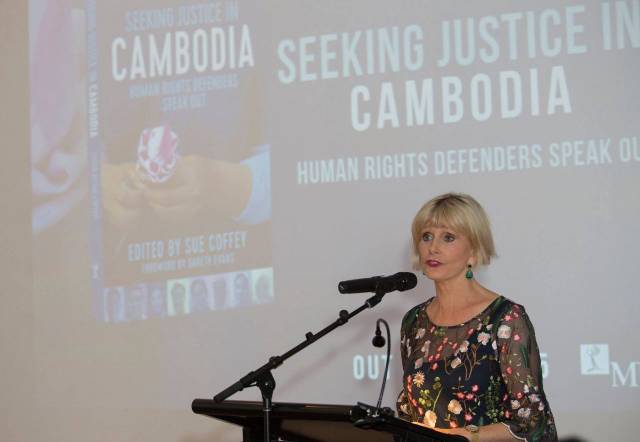
Sue Coffey is the author of "Seeking Justice in Cambodia: Human Rights Defenders Speak Out." Photo from Facebook.
She pointed to the recent arrest of three Cambodian refugees by Thai authorities at the request of the Cambodian government, to prevent them from protesting during Hun Manet's recent visit there.
“The arrests caused international outrage, and only the protests by human rights organisations prevented the refugees from being deported to Cambodia, where their fate would have been very serious.
Protest planned ahead of diaspora meeting
Representative of the Cambodian Association in Victoria Chea Youhorn said a peaceful protest has been planned for March 2, a day ahead of Hun Manet’s meeting with the diaspora in Melbourne.
“What we Cambodians here want to see is respect for democracy and adherence to the 1991 Paris Peace Agreement, which is why we are prepared to hold a protest,” said Youhorn, who fled the Khmer Rouge in the 1970s and made his way to be elected as Greater Dandenong's first Asian mayor in 2001.
“The reason we hold protests is because we want Cambodian leaders to know that our compatriots here are not content with the continued suppression of opposition politicians and union leaders,” he said.
“If the government cares more about improving the human rights situation and releasing political prisoners as well as union leaders including key figures like Kem Sokha, Seng Theary and Chhim Sithar, we will applaud strongly and even go to greet our leader,” he said.
He said about 1000 people would participate in the protest in front of the Victoria State Parliament.
Bona said the government welcomes Cambodian people’s decisions to greet him or protest during his Australian visit.
“Voicing disapproval or support manifests a democracy. Normally, a small group of people organize such a protest, but we always respect their rights if the protest is peaceful and compliant with local laws and regulations,” Bona said, adding that the government stands on democratic principles to respect the differences.
Sue Coffey said people who will be organizing and taking part in the protest include many who have been intimidated and harassed by members of the CPP in Australia, established by Hun Manet as a chief recruiter over many years.
“Many, such as former MP Hong Lim, former Mayor Chea Youhorn and MP Heang Meng Tak, have received serious threats,” Sue said, adding that the planned protests demonstrate that Cambodian diaspora in Australia is no doubt that Hun Manet is perpetuating the dictatorship his father established.
Hun Sen who visited Australia in 2018 for the special ASEAN Australia Summit also was greeted by protestors, who accused him of repressing political dissidents and of human rights abuses.
While the visit by Hun Manet is sparking joy and discontent, Chea Youhorn rejected the idea that it manifests a division among the Khmer community in Australia.
“I think our people have the freedom to either support or oppose any leader. As a former councillor and major here with the Labor Party, I think people having different opinions is normal. Respect for a difference in political tendency and opinion is the core of progress and democracy,” he said.
“Unlike our leader who often deems those with different political tendencies an enemy, I think we must accept that all of us are patriotic, but we just have different opinions.”
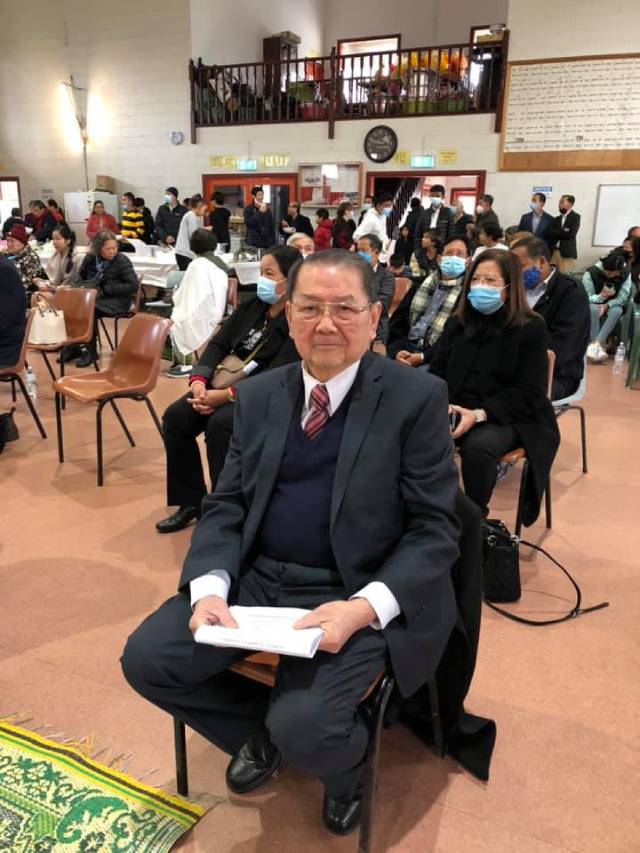
The photo shows a representative of the Cambodian Association in Victoria Chea Youhorn. Photo from Facebook
Revisiting Australia’s Soft Approach
Youhorn also revealed that a petition has been prepared to call on the Australian government to take concrete action in response to Cambodia’s backsliding democracy and human rights.
“We prepare a petition for submitting to Australian Prime Minister Albanese. We hope he will reconsider the government’s position on Cambodia.”
As a former political prisoner, Sucheab hopes that Hun Manet’s presence will offer an opportunity for the Australian government to reconsider its position and encourage the young leader to be more open and address human rights issues at home.
“I want to appeal to the Australian government to help push the Cambodian leader to ensure a balance of power, ending the repression of the opposition group while promoting freedoms and democracy,” Sucheab said.
While acknowledging Cambodian human rights and democracy remain an issue, Sovinda underscored the limited political power Australia holds when dealing with Cambodia.
“Australia has much interest in Cambodia in terms of investment, trade and, less so, security. Australia will only add fuel to the fire if it chooses to criticize the political practices of Cambodia,” he said.
Meanwhile, Vannak said that Australia's soft stance on Cambodia reflects the soft diplomacy that Australia adheres to in its relations with countries in the Asia-Pacific region, the Cooperative Security Policy.
“Commonly, Australia adheres to the principles of promoting the values of dialogue rather than using force or economic sanctions,” Vannak said. “As a middle power, it prefers a soft diplomatic policy towards Cambodia, valuing economic development and strengthening bilateral cooperation for the benefit of the two governments.”
Australian rights advocate Sue said Australia focuses on building business ties instead of protesting human rights violations.
“Notably, the latest paper from DFAT does not mention democracy regarding aspirations for our global partnerships,” Sue said.
“It only suggested that Australia currently lacks a vision for reshaping global affairs - our foreign policy has adopted a status quo attitude to achieve strategic equilibrium.”
However, the Australian government must take the protests seriously and pay due respect to the protestors. When asked how the protests would influence the Australian government’s policy, Sue said it was important to remain hopeful as the protests may usher in some substantial steps.
“Such protests would increase demands that Cambodia restore democracy and human rights,” Sue said, adding that the decision may lead to stopping senior Cambodian officials from gaining visas to Australia to set up a political network while contributing to the improvement of Australia's foreign interference and money laundering laws.
However, Bona said any criticisms of Australia's soft stance on Cambodia's human rights and democratic issues are only made by certain people with opposition political tendencies and are unhappy with Australia's effort to maintain good relations with Cambodia.
“The Australian government has a fair and correct judgment on Cambodia's situation. The leaders of Australia understand Cambodia's tragic and painful history and they know who has sacrificed the most for human rights in the country,” Bona said.
“It is the ruling CPP and former Prime Minister Hun Sen. He has sacrificed everything to rebuild the country, bringing overall development and everything people need.”
Australia can do more
Seeking Justice in Cambodia book author, Sue said the criticisms of Australia’s Cambodian position were right, as it does not act to push Cambodia to try and improve democracy and human rights in Cambodia.
“Our lack of action on Cambodia has earned considerable contempt from international human rights organisations such as Human Rights Watch,” Sue said.
Noting that Australia provides almost $90 million in aid to Cambodia, Sue said it should put conditions on this aid, particularly demonstrating development towards democracy. Otherwise, it can be said to be appeasement funding.
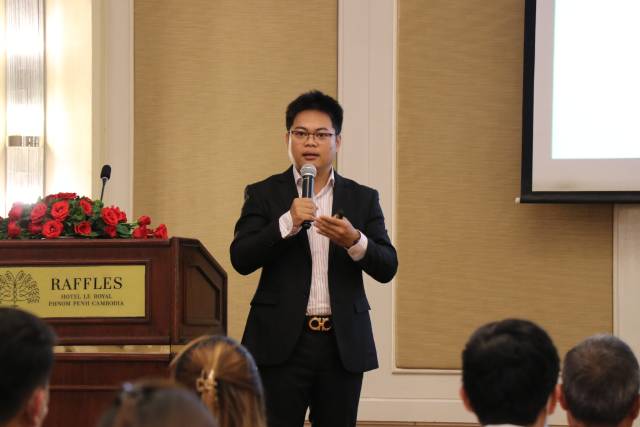
Po Sovinda is the director of the Center for Southeast Asian Studies at the Royal University of Phnom Penh. Photo: Ponlok Chumneas/Twitter
The use of its Magnitsky legislation to impose visa sanctions and asset freezes on senior members of the Cambodian government should be enforced strictly while improving the Foreign Interference and Money Laundering laws to prevent members of the regime from intimidating members of the diaspora.
“The EU, US and UK recently announced tougher visa restrictions against senior members of the Cambodian regime; why has Australia not done so?” she said.
Australia should have protested before the recent banning of the Candlelight Party yet said nothing.
“Australia is looked to as a beacon of human rights and democracy in our region, yet we have been virtually silent on recent Cambodian developments. The Australian Government has also said virtually nothing about the 27-year sentence imposed on Kem Sokha, former head of the CNRP,” she said.
“Overall, we need to stand up for Australia's values of human rights and democracy and be far more outspoken in demanding the restoration of these in Cambodia.”
However, Sovinda noted that Hun Manet can be an open political leader, but the new and young leader needs more time to ensure a positive change in the country considering that he inherited an intricate political situation.
“Manet has many tasks to shape Cambodia's political traditions to his liking. That takes much time given the fact that some old guards remain,” Sovinda said, adding that Australia should not see Hun Manet through the lens of a political dynasty.
“Australia should view him as a very pragmatic statesman willing to strike a favourable deal with Australia, benefiting Cambodia, Australia and the region.”
Thayer, who is also the director of Thayer Consultancy, also agreed that the Australian government along with like-minded countries could do more in five years to encourage the Cambodian government with Manet as a new leader to improve its record on human rights and democracy.
He said the ASEAN-Australia summit would offer an opportunity for a one-on-one meeting between Australia’s Prime Minister Anthony Albanese and Hun Manet.
“This is an opportunity to develop a personal relationship and identify convergence in national interests,” he said, adding that helping Cambodia to be a better team player as a member of ASEAN is fundamental for Australia.
Vannak of the Cambodian Institute for Democracy said Australian leaders should raise the issue of healthy democratic development in Cambodia in special meetings while Hun Manet can be more receptive to such constructive engagement.
“The significance of strong state institutions, opposition parties with equal opportunities for free and fair competition, vibrant civil societies, and independent media outlets cannot be ignored. This is vital for the interests of both countries which are adhering to the parliamentary system,” Vannak said.
Lack of action to advocate for democracy and respect for human rights, especially the rights of workers and unions, could have a detrimental effect on the liberal values Australia has long been upholding.
Nonetheless, Katrin was less optimistic that the Australian government would or could reconsider altering its approach to the suppression of Cambodian opposition.
“The Cambodian government's efforts to suppress the opposition in Cambodia are just as well documented as the repression tactics against its opponents here in Australia,” Katrin said.
“These issues have been raised many times by members of the Australian parliament and the Cambodian diaspora. No action has been taken and, in my opinion, no action will be taken.”
The Cambodian government’s representative, Bona hinted that nothing would influence Australia’s approach toward Cambodia and affect the ties.
“Every country around the globe now wants to be friends with Cambodia, and they consider us equal. They understand our situation well,” said Pen Bona. “Any attempt to influence the Australian government’s position will be just useless.”






